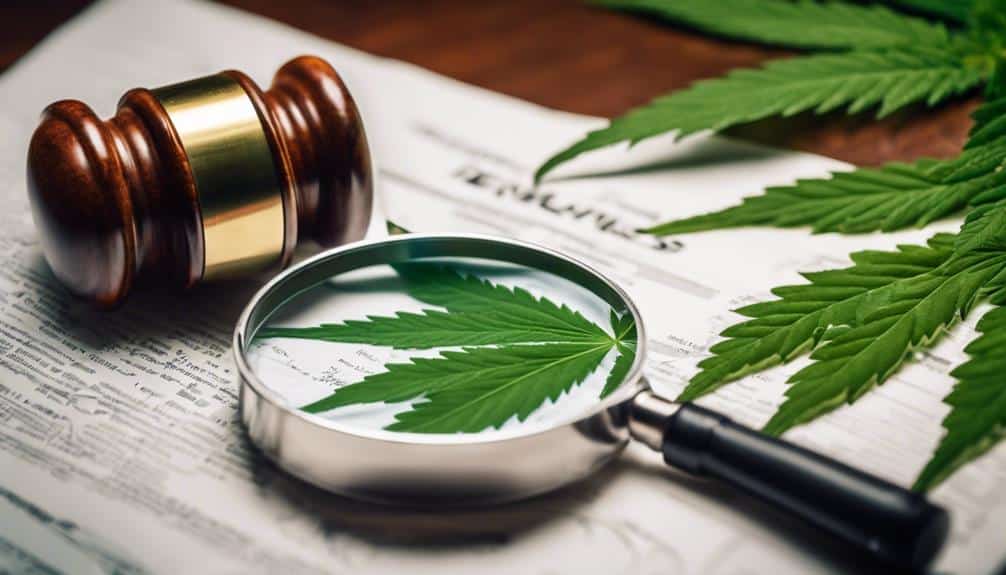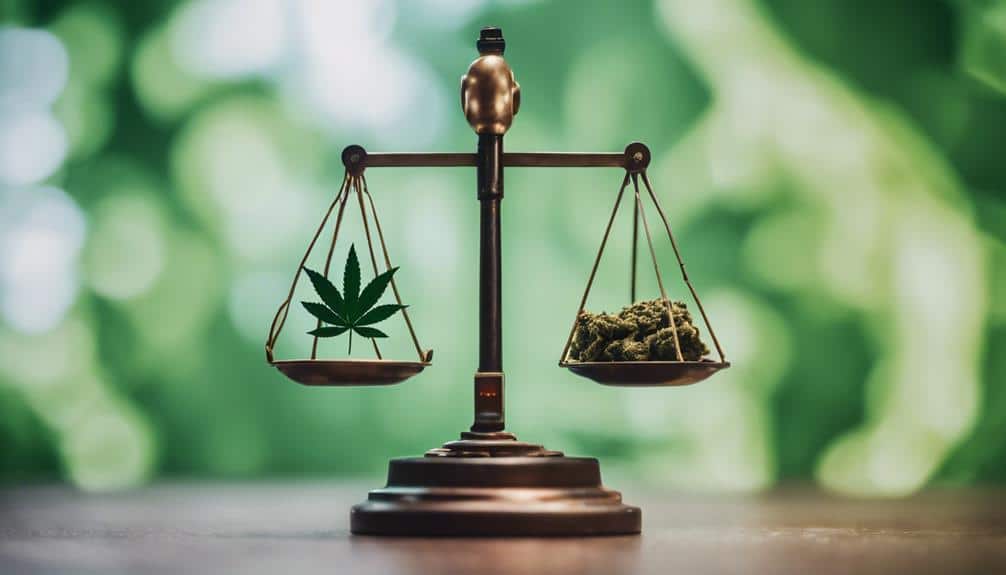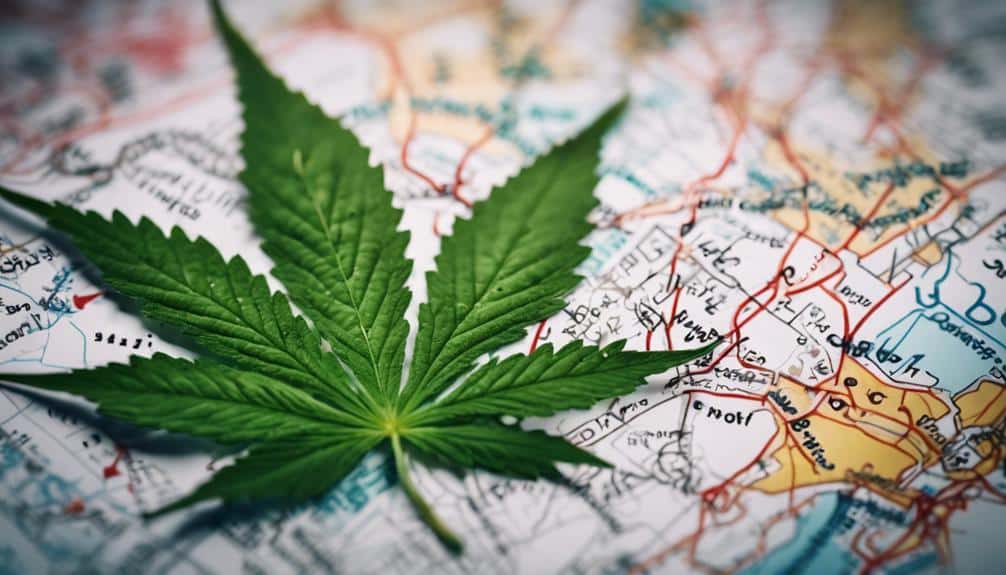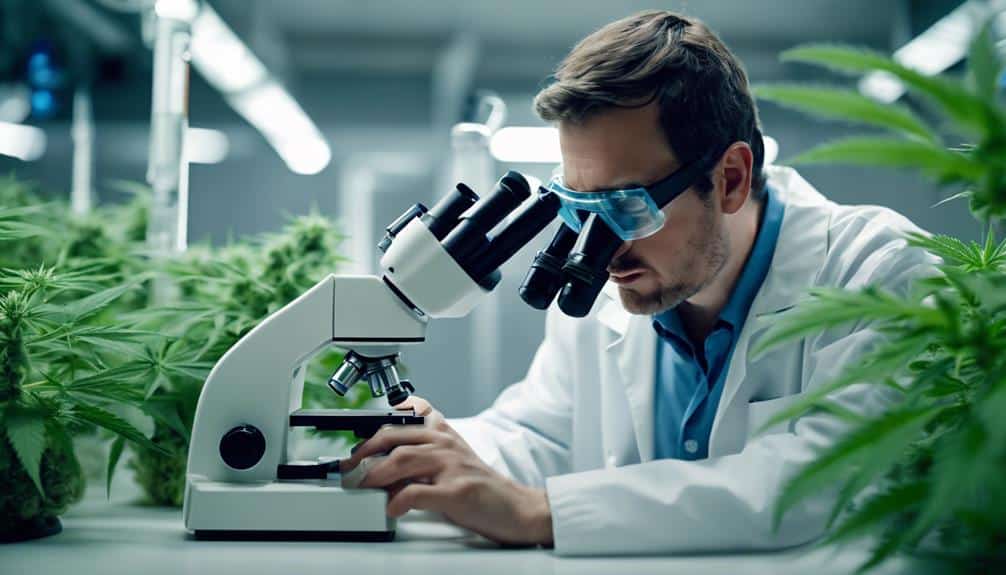Imagine navigating through a thick fog of misinformation, struggling to separate fact from fiction. This is the experience many encounter when it comes to medical marijuana in Delaware. You may have heard that it’s merely a legal way to get high or that it’s dangerously addictive. However, these are misconceptions that need debunking. If you’re curious and willing to clear the fog, you’ll discover a landscape of strict regulation, therapeutic potential, and responsible use that might surprise you. Are you ready to challenge what you think you know?
Table of Contents
Delaware’s Medical Marijuana Legislation

Although Delaware legalized medical marijuana in 2011, understanding the specifics of its legislation can help navigate its usage and distribution more effectively. It’s crucial to familiarize yourself with any legislative loopholes and the approval process.
Several legislative loopholes exist that might seem perplexing. For instance, while the law permits medical marijuana use, it doesn’t explicitly allow consumption in public places. Also, the law doesn’t protect employees from being fired for positive marijuana tests even if used medically. Understanding these loopholes can guide your service to others by ensuring compliance with the law.
The approval process involves several steps: being a Delaware resident with a qualifying debilitating medical condition; obtaining written certification from your physician; then applying for the Medical Marijuana Card—a lengthy but necessary process designed to ensure access only for those who genuinely need it.
Understanding this legislation equips you to provide valuable guidance and support to those exploring medical marijuana as a treatment option.
Understanding the Medical Use
Now that you’re familiar with Delaware’s medical marijuana legislation, it’s time to comprehend the actual medical applications of this plant. Central to this understanding is Cannabinoid Chemistry. Marijuana contains various cannabinoids—chemical compounds that interact with specific receptors in the human body. THC and CBD, for instance, are well-known, each offering distinct therapeutic potential. THC is known for its psychoactive effects and can be used for pain relief, while CBD is non-psychoactive and has been found effective in treating seizures and anxiety.
However, not everyone can use medical marijuana in Delaware. Patient Eligibility is strictly defined by law. If you’re suffering from debilitating conditions like cancer, Alzheimer’s disease, post-traumatic stress disorder or severe pain unresponsive to traditional treatments, you could be eligible. It’s also crucial to note that a physician must confirm your condition and recommend medical marijuana as a treatment option.
Understanding the medical use of marijuana isn’t just about knowing the legislation but also appreciating its chemistry and potential benefits. Serving others means helping them navigate these intricate details to make informed decisions about their health.
Debunking Recreational Vs Medical Myths

Despite acceptance of medical marijuana in Delaware, numerous misconceptions blur the line between its recreational and medical use. Public perception often conflates these two uses, complicating regulatory challenges and leading to misunderstanding.
Firstly, the potency of medical marijuana significantly differs from its recreational counterpart. Medical strains are cultivated specifically to address certain health conditions, focusing on therapeutic compounds. They’re not designed to induce the ‘high’ commonly associated with recreational marijuana.
Secondly, medical marijuana is tightly regulated—it’s not a free-for-all. Patients must have a qualifying condition and a doctor’s recommendation; dispensaries must adhere to strict rules and regulations. This contrasts greatly with the more relaxed laws surrounding recreational use.
Finally, the intention behind medical marijuana is fundamentally different—it’s used to alleviate symptoms, improve quality of life or treat illness. Recreational use is primarily for pleasure or relaxation.
Don’t let these misconceptions confuse you—medical marijuana serves a significant purpose in healthcare. By understanding the differences, you can contribute to a more informed conversation around its use and regulation.
Medical Marijuana: Addiction Concerns
While understanding the therapeutic benefits of medical marijuana, it’s crucial to address concerns about potential addiction that often cause apprehension in patients and healthcare providers alike. You’ve likely heard stories or seen addiction statistics related to marijuana use; however, it’s essential to differentiate between supervised medical usage and recreational usage.
When used responsibly as prescribed, medical marijuana carries a relatively low risk of addiction. According to the National Institute on Drug Abuse, only about 9% of marijuana users become dependent—a rate considerably lower than substances like tobacco (32%) or alcohol (15%). However, misuse or overuse can lead to dependency characterized by withdrawal symptoms such as restlessness, irritability and sleep difficulties.
Honest discussions with your healthcare provider about your concerns regarding addiction are essential. Medical marijuana is a tool that, like all tools, must be used responsibly to ensure its benefits outweigh potential risks. Awareness of addiction statistics and understanding withdrawal symptoms will help you make informed decisions about your treatment options.
Addressing Health Risks Misconceptions

Understanding the health risks associated with medical marijuana can often be clouded by misconceptions and misinformation, which can skew your perception and hinder an informed decision-making process. The importance of patient education and cannabinoid safety cannot be overstated.
A common misconception is the belief that medical marijuana is a ‘gateway drug’ leading to the use of more harmful substances. However, this isn’t supported by scientific evidence. It’s crucial to distinguish between correlation and causation—while some people who use harder drugs may have started with marijuana, this doesn’t mean marijuana caused their subsequent drug use.
Another misunderstanding revolves around potential harm caused by smoking medical marijuana. While smoking anything, including marijuana, can harm lung health; medical marijuana can also be administered in other ways such as vaporizing, oils, edibles or topical creams which pose less risk.
Lastly, some people fear the psychoactive effects of marijuana; however not all cannabinoids—the active chemicals in medical marijuana—cause these effects. For instance CBD—one of the key medicinal cannabinoids—doesn’t produce a ‘high.’
In debunking these myths we aim to promote informed decisions around medical marijuana use in Delaware.
Legal Implications for Patients
Navigating the legal landscape of medical marijuana use can be tricky, especially when it comes to understanding the rights and responsibilities of patients in Delaware. The state’s regulations aim to safeguard both your health and your privacy. Patient Confidentiality is a cornerstone in Delaware’s medical marijuana program—your personal health information is protected by law and won’t be shared without your consent, except under specific legally defined circumstances.
Prescription Regulations also play a significant role in protecting you as a patient. You’re required to be diagnosed with a qualifying condition by a registered physician. It’s not just about getting a prescription—it’s also about ensuring that the prescription is appropriate for your condition and doesn’t put you at any unnecessary risk.
Therapeutic Uses and Research Findings

Beyond legalities and prescription regulations, it’s equally important to recognize the therapeutic potential of medical marijuana and recent research findings in this area. The cannabinoid chemistry—a primary component of medical marijuana—holds a wide range of possible health benefits.
In understanding patient eligibility for medical marijuana, you must first appreciate its potential to alleviate symptoms associated with chronic ailments. Current research suggests that cannabinoids can help manage pain, reduce inflammation, control epileptic seizures, even slow Alzheimer’s disease progression. Moreover, it has shown promise in reducing nausea during chemotherapy and improving appetite in HIV/AIDS patients.
The realm of mental health has also seen potential benefits. Medical marijuana may alleviate symptoms of mental health disorders such as PTSD and anxiety. However, it’s essential to note that research is ongoing and while promising, these findings shouldn’t replace conventional treatments without a doctor’s approval.
In serving others, understanding these therapeutic uses will allow you to better guide those considering this treatment option. As the landscape of medical marijuana continues to evolve, so too will patient eligibility and our understanding of its benefits.
Conclusion
As the saying goes, ‘knowledge is power.’ By comprehending Delaware’s medical marijuana legislation, debunking common misconceptions and understanding its therapeutic uses, you’ll be better equipped for informed discussions. Remember—medical marijuana isn’t about getting ‘high’ but about symptom alleviation. Used responsibly, the risk of addiction is low. So let’s dispel these myths and make well-informed decisions about medical marijuana use in Delaware.
We warmly invite you to expand your knowledge further by visiting us at Cannabis Docs of Delaware. We’re always here to help clarify any doubts or concerns you may have. Why not give us a call at (855) 420-6797? Our friendly team would love to guide you through the process. Together we can help you make the most informed decisions about medical marijuana.

